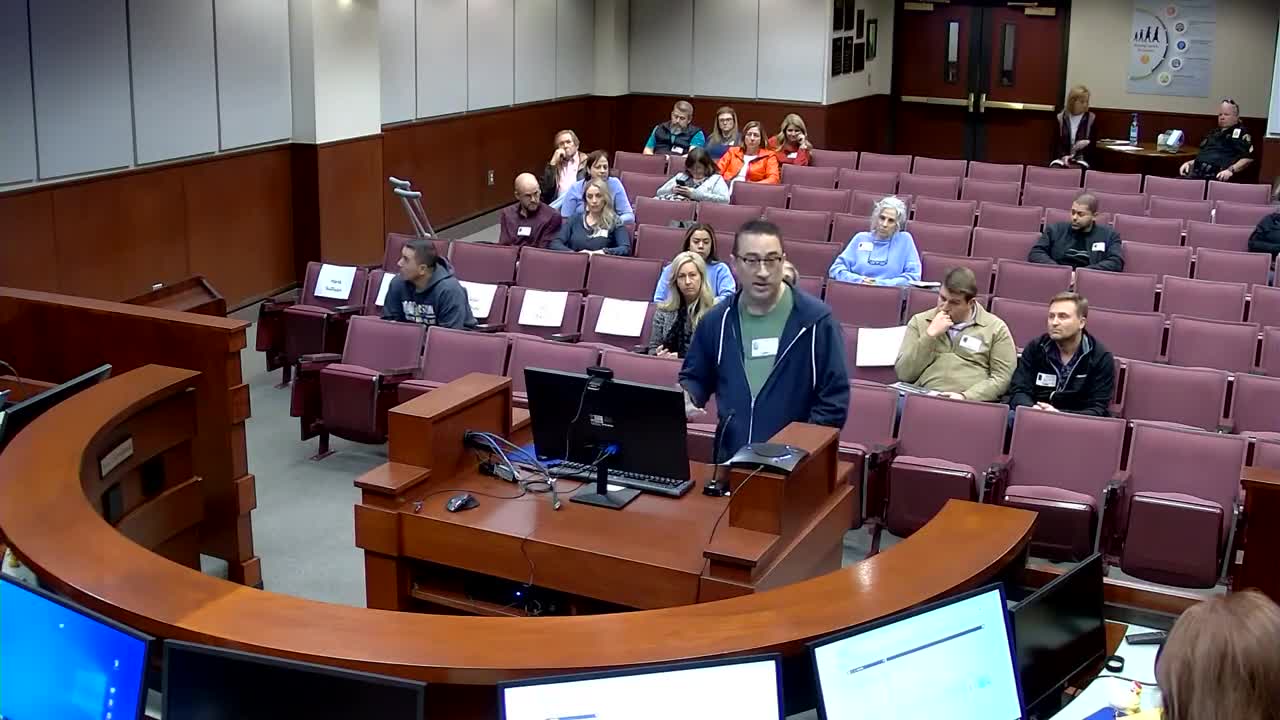Premium Only Content

Forsyth County Georgia Board of Education - Jere Krischel - 11/16/2021
One of the key pillars of many Diversity, Inclusion, and Equity programs is the idea of "privilege". Most often cast in terms of skin color, or even more oddly sexual preference, "privilege" is used as a justification for treating people differently. If you have lots of privilege, the expectations on you are high. If you have very little privilege, the expectations on you are low.
Now, say for a moment that we accept this premise - just for a moment, imagine that simply being light white and straight is always a great privilege, and being dark black and gay is always very little privilege. Ignore, for a moment, that light white people can be poor, or that dark black people can be rich. Ignore, for a moment, that straight people can have learning disabilities, or that gay people can be geniuses.
There are two primary ways you can decide to address the alleged differences in privilege. One way to do it, is to run a fine tooth comb through the system, and remove any explicit favoritism. If there is a rule that says, "only white straight people get to sit in the front of the bus", you remove that rule. You equalize the playing field, by removing the explicit privileges given because of a certain skin color, or a specific sexual preference.
The other way to do it is to come up with new rules that explicitly add favoritism for the people that you believe have very little privilege. If gay people have a harder time in math, you make a new rule that says, "if you're gay, you get extra math tutoring". Or if there aren't enough dark black people in the country line dancing team, you make a new rule that says, "15% of the country line dancing team must be dark black".
It used to be that the idea of being color blind, and treating people based on the content of their character rather than the color of their skin, was the socially accepted ideal. We spent decades removing discriminatory rules from our systems, working towards equity in treatment - and this worked. It helped us remediate grave injustices of the past, and was leading us towards a truly equitable future.
Sadly, this point of view has fallen out of favor with people who run most of our systems - Hollywood, the mainstream media, much of academia, and even a large number of politicians, have now embraced the idea of equity of outcome instead of equity in treatment.
It is no exaggeration, to say that today, we live in a system that is characterized not by the white privilege of the 1950s, but by the woke privilege of the 21st century. If you have the right politics in 2021, you can riot, loot, and burn with no punishment. But if you have the wrong politics in 2021, you can lose your job, be thrown into solitary confinement over simple trespassing charges, or be banned from major social media platforms.
And so what can we do? Now that we've spent years giving explicit systemic privilege to the woke, and taking away privilege from conservatives and libertarians, can we use the same argument to ensure that DEI provides new rules for helping the conservatives and libertarians who are now systemically discriminated against?
Or, should we instead recalibrate our thinking, and treat all people as individuals, deserving of equal respect and treatment, rather than judging them by their group characteristics?
It is my hope that any future DEI programs adopted by the board are scrutinized for any implicit or explicit woke bias.
Thank you very much for listening, and as always, if there's anyone who disagrees with me, I'd love to take them out to lunch and hear their point of view!
-
 2:27:40
2:27:40
Reidboyy
2 hours agoHow To Make $$$ in Delta Force Console Operations!
6.48K -
 1:43:50
1:43:50
The Mel K Show
3 hours agoMORNINGS WITH MEL K - Desperate Globalist Agenda Continues Unabated as Manufactured Chaos Abounds 9-12-25
34.5K4 -
 2:55:00
2:55:00
Benny Johnson
5 hours ago🚨Charlie Kirk's Killer CAUGHT: FBI Press Conference LIVE Right NOW | Trump Demands DEATH PENALTY
186K368 -
 DVR
DVR
Bannons War Room
6 months agoWarRoom Live
35.9M8.39K -
 35:53
35:53
Tudor Dixon
3 hours agoCharlie Kirk Assassination: Confronting Terrorism with Rob Chadwick | The Tudor Dixon Podcast
22.8K6 -
 1:01:02
1:01:02
VINCE
5 hours ago'WE GOT HIM' - Charlie's Killer In Custody | Episode 124 - 09/12/25
359K329 -
 LIVE
LIVE
LFA TV
14 hours agoKILLER CAUGHT LIVE PRESSER! - FRIDAY 9/12/25
3,779 watching -
 1:36:33
1:36:33
Dear America
5 hours agoBREAKING NEWS! Trump Announces Charlie’s Killer Is In Custody! DEATH PENALTY IS THE ONLY OPTION!!!
326K220 -
 1:45:41
1:45:41
Timcast
5 hours ago🚨PRESS CONFERENCE: Charlie Kirk Suspect In Custody | Tim Pool
173K240 -
 1:58:21
1:58:21
Badlands Media
10 hours agoBadlands Daily: September 12, 2025 – Kirk’s Assassin, 9/11 Parallels, and Secret Service Failures
91.6K28